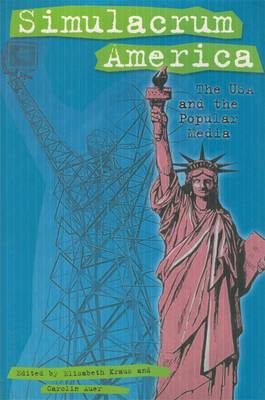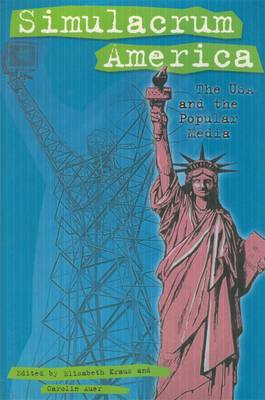
- Retrait gratuit dans votre magasin Club
- 7.000.000 titres dans notre catalogue
- Payer en toute sécurité
- Toujours un magasin près de chez vous
- Retrait gratuit dans votre magasin Club
- 7.000.0000 titres dans notre catalogue
- Payer en toute sécurité
- Toujours un magasin près de chez vous
Simulacrum America
The USA and the Popular Media
104,95 €
+ 209 points
Description
A collection of articles that analyses the role of the media in America from a deconstructionist viewpoint. This collection of original essays is a response to the paradigm shift that has taken place in cultural studies in the wake of postmodernism and poststructuralism. Such concepts as 'truth' or 'reality' have been increasingly called into question, since the realization that our experience of 'the real' is always mediated through an "empire of signs," as Roland Barthes put it. After a predominantly optimistic evaluation of the effects of the media in the 1960s (by Marshall McLuhan, Hans Magnus Enzensberger, and others), a growing awareness of the total manipulation of society by mass-media imagery has emerged. The very concept of 'representation' has become problematic, witness the influential essay "The Precession of Simulacra" by the French sociologist Jean Baudrillard, in which he defines simulation as "the generation by models of a real without origin or reality: a hyperreal"- the current boom in 'realityTV' comes to mind. In the seventeen years since the publication of Baudrillard's Simulacra and Simulation, ever more sophisticated technologies based on the computer as the simulacrum machine par excellence have offered us powerful new means of manipulating data - and consequently, means of manipulating, editing, and inventing 'reality.' The aim of this study is to unmask false 'representations', showing history, personal and cultural identity (especially gender and racial identities), the simulacrum of speed -- and American 'reality' itself -- to be constructs.
Spécifications
Parties prenantes
- Editeur:
Contenu
- Nombre de pages :
- 271
- Langue:
- Anglais
- Collection :
- Tome:
- n° 5
Caractéristiques
- EAN:
- 9781571131874
- Date de parution :
- 26-11-99
- Format:
- Livre relié
- Format numérique:
- Genaaid
- Dimensions :
- 161 mm x 238 mm
- Poids :
- 576 g

Les avis
Nous publions uniquement les avis qui respectent les conditions requises. Consultez nos conditions pour les avis.





